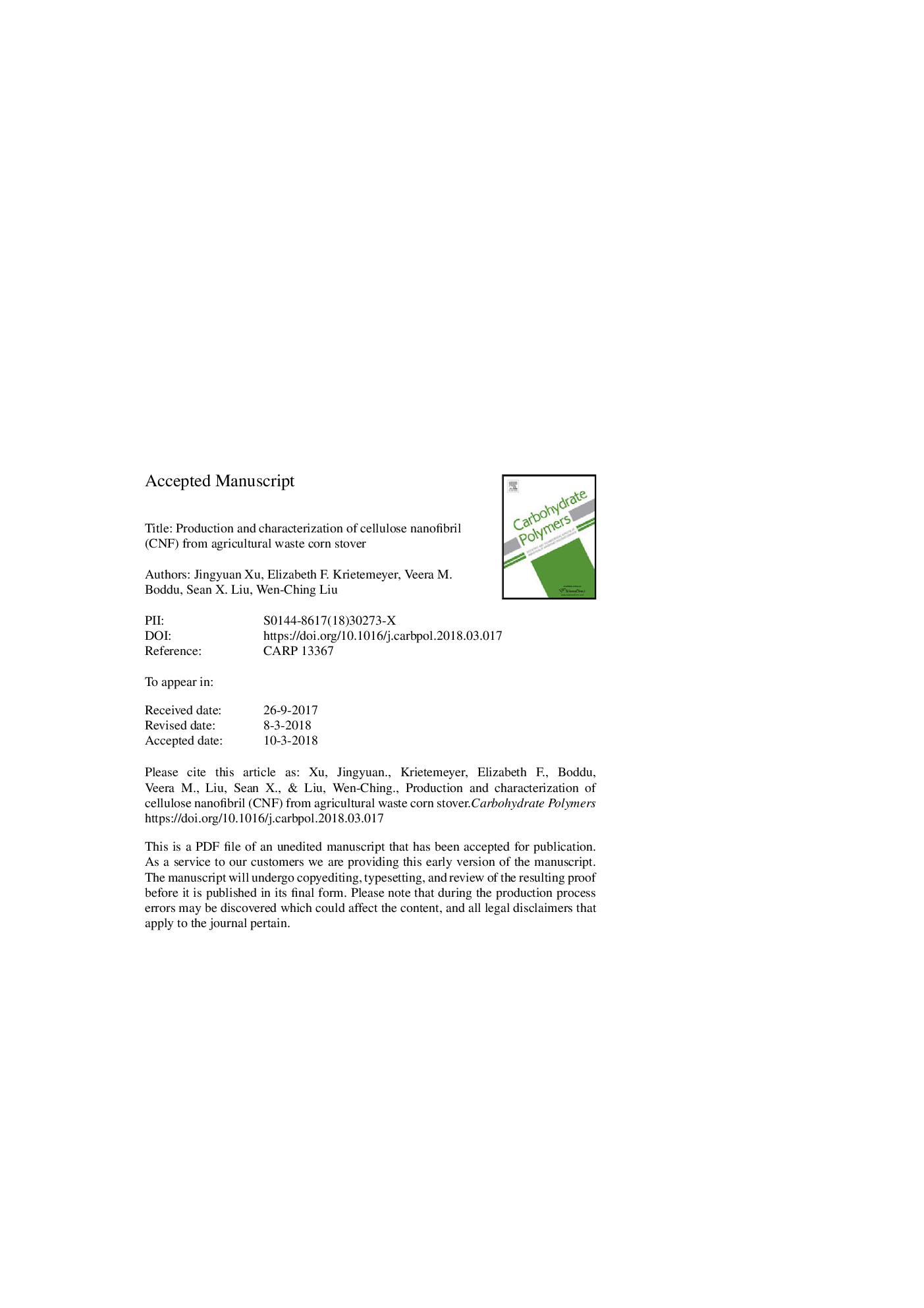| Article ID | Journal | Published Year | Pages | File Type |
|---|---|---|---|---|
| 7782712 | Carbohydrate Polymers | 2018 | 27 Pages |
Abstract
Agricultural waste corn stover has little economic value. Cellulose was extracted from corn stover by the processes of alkali treatment and delignification, resulting in aâ¯>â¯93% purity. The particle size of the extracted cellulose was reduced by mechanical shearing through high pressure homogenization. When passing through a homogenizer thirty times, the cellulose nanofibril (CNF) can be obtained. The diameters of the CNF ranged between 5 and 50â¯nm, and the lengths were microns. The mechanical properties of the films, made by corn stover cellulose, with and without high pressure homogenization shearing were evaluated using an Instron instrument. The films made by cellulose without shearing exhibited weaker mechanical properties, while the CNF films exhibited stronger mechanical properties. The linear rheological properties of CNF suspensions were also investigated and results show solid-like viscoelastic behavior. Our findings regarding corn stover CNF are similar to those CNF from other sources reported in the literature.
Keywords
Related Topics
Physical Sciences and Engineering
Chemistry
Organic Chemistry
Authors
Jingyuan Xu, Elizabeth F. Krietemeyer, Veera M. Boddu, Sean X. Liu, Wen-Ching Liu,
